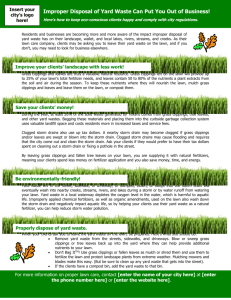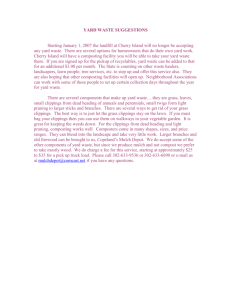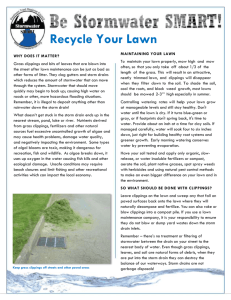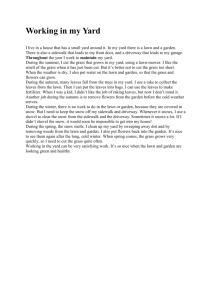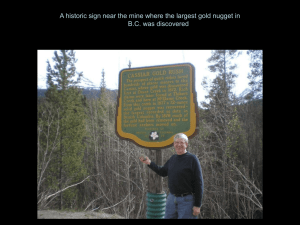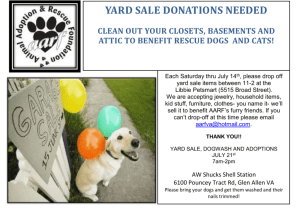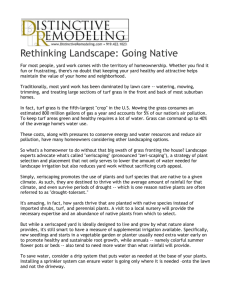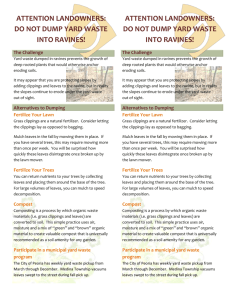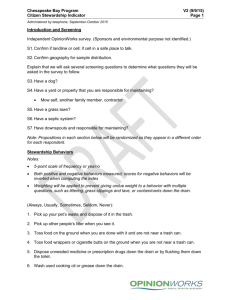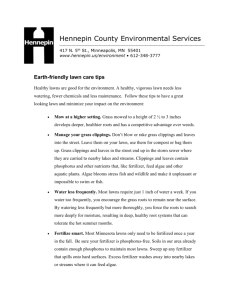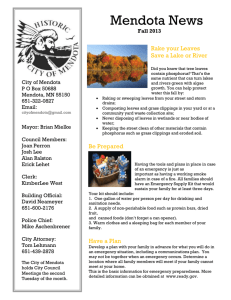news release
advertisement
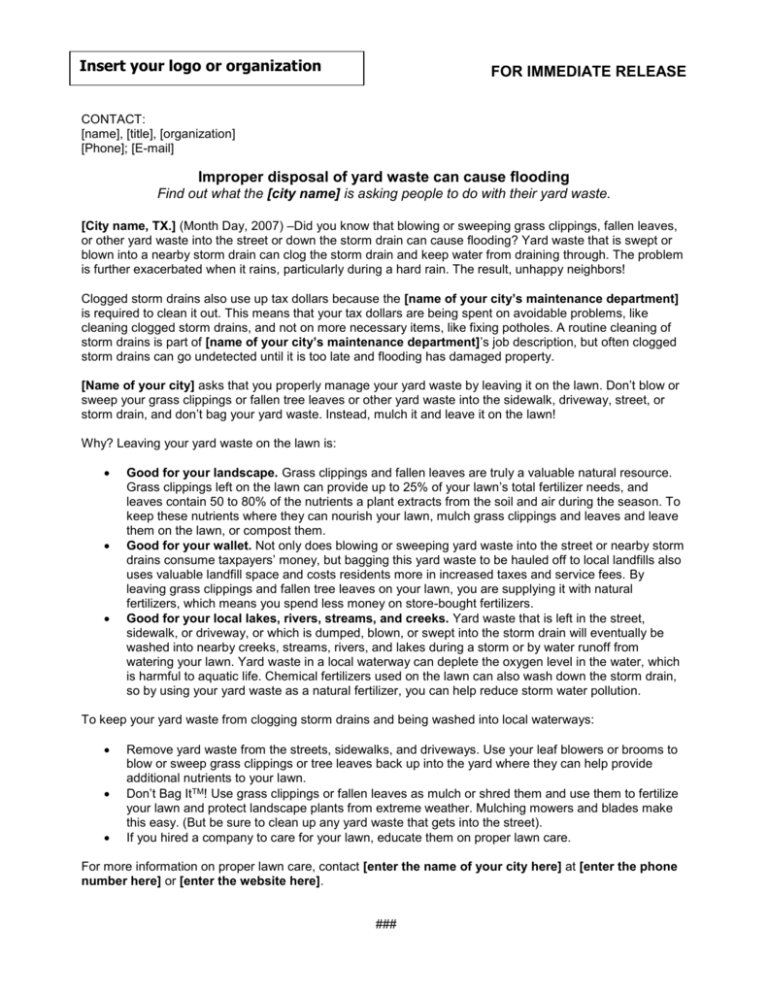
Insert your logo or organization name FOR IMMEDIATE RELEASE CONTACT: [name], [title], [organization] [Phone]; [E-mail] Improper disposal of yard waste can cause flooding Find out what the [city name] is asking people to do with their yard waste. [City name, TX.] (Month Day, 2007) –Did you know that blowing or sweeping grass clippings, fallen leaves, or other yard waste into the street or down the storm drain can cause flooding? Yard waste that is swept or blown into a nearby storm drain can clog the storm drain and keep water from draining through. The problem is further exacerbated when it rains, particularly during a hard rain. The result, unhappy neighbors! Clogged storm drains also use up tax dollars because the [name of your city’s maintenance department] is required to clean it out. This means that your tax dollars are being spent on avoidable problems, like cleaning clogged storm drains, and not on more necessary items, like fixing potholes. A routine cleaning of storm drains is part of [name of your city’s maintenance department]’s job description, but often clogged storm drains can go undetected until it is too late and flooding has damaged property. [Name of your city] asks that you properly manage your yard waste by leaving it on the lawn. Don’t blow or sweep your grass clippings or fallen tree leaves or other yard waste into the sidewalk, driveway, street, or storm drain, and don’t bag your yard waste. Instead, mulch it and leave it on the lawn! Why? Leaving your yard waste on the lawn is: Good for your landscape. Grass clippings and fallen leaves are truly a valuable natural resource. Grass clippings left on the lawn can provide up to 25% of your lawn’s total fertilizer needs, and leaves contain 50 to 80% of the nutrients a plant extracts from the soil and air during the season. To keep these nutrients where they can nourish your lawn, mulch grass clippings and leaves and leave them on the lawn, or compost them. Good for your wallet. Not only does blowing or sweeping yard waste into the street or nearby storm drains consume taxpayers’ money, but bagging this yard waste to be hauled off to local landfills also uses valuable landfill space and costs residents more in increased taxes and service fees. By leaving grass clippings and fallen tree leaves on your lawn, you are supplying it with natural fertilizers, which means you spend less money on store-bought fertilizers. Good for your local lakes, rivers, streams, and creeks. Yard waste that is left in the street, sidewalk, or driveway, or which is dumped, blown, or swept into the storm drain will eventually be washed into nearby creeks, streams, rivers, and lakes during a storm or by water runoff from watering your lawn. Yard waste in a local waterway can deplete the oxygen level in the water, which is harmful to aquatic life. Chemical fertilizers used on the lawn can also wash down the storm drain, so by using your yard waste as a natural fertilizer, you can help reduce storm water pollution. To keep your yard waste from clogging storm drains and being washed into local waterways: Remove yard waste from the streets, sidewalks, and driveways. Use your leaf blowers or brooms to blow or sweep grass clippings or tree leaves back up into the yard where they can help provide additional nutrients to your lawn. Don’t Bag ItTM! Use grass clippings or fallen leaves as mulch or shred them and use them to fertilize your lawn and protect landscape plants from extreme weather. Mulching mowers and blades make this easy. (But be sure to clean up any yard waste that gets into the street). If you hired a company to care for your lawn, educate them on proper lawn care. For more information on proper lawn care, contact [enter the name of your city here] at [enter the phone number here] or [enter the website here]. ###
